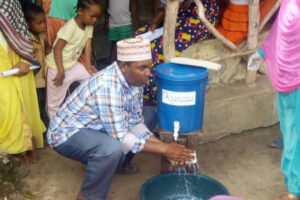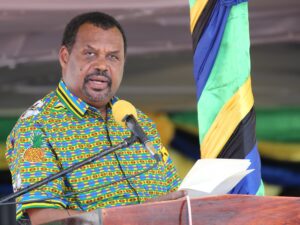The company’s Annual General Meeting (AGM) approved a dividend per share of Sh20 at the weekend, up from Sh17 that was shared last year.
The company’s net profit was $3.8 billion last year.
“A dividend per share of Sh20 was approved during the AGM that involved shareholders from various regions, including those from Dar es Salaam, Mwanza, Mbeya, and Arusha who participated in the AGM via a Zoom link,” said the company’s chief executive officer, Mr Erasto Ngamilaga. The dividend will be paid on December 15, next month.
Dr Gideon Kaunda, Chairman of the Nicol Board, praised the management for investing shareholder funds in profitable ventures, stating that this was the reason the collective investment firm was now paying dividends almost every year.
The company invested 30 percent of its investment money in government securities.
With over 30,000 shareholders across the country, Dr Kaunda said, it made sense to conduct the AGM via a zoom link. He said it was the desire of the company’s management to see dividends go up year after year, promising that the management would do better in the future.
One of the shareholders who participated in the meeting, Mutamwega Mugaywa, commended the company’s management for raising profits.
He said that according to the audited financial results, he was convinced that the company was on the right track.
Share this news
This Year’s Most Read News Stories

Zanzibar terminates land lease offered to British developer
The Revolutionary Government of Zanzibar (SMZ) has terminated a land lease held by British property developer Pennyroyal Limited in Matemwe, the developer has announced.Continue Reading

Villagers on Pemba Island lack clean sanitized water
Eight villages on Pemba Island have lacked clean and safe water service while complaining to the Zanzibar Water Authority for failing to solve the water problem in their villages.Continue Reading

ZSSF money not for projects, says Ali Karume
Unguja. Veteran politician and diplomat Ali Karume has called on authorities of the Zanzibar Revolutionary Government (SMZ) to refrain from using the Zanzibar Social Security Fund money for establishing commercial projects.Continue Reading












